AP automation unlocked: A CFO’s guide to efficiency
The work of a CFO has long surpassed the confines of tackling department-specific manual tasks. In a world that is advancing at an exponential pace, interconnected and cohesive decision-making, strategy-driven focus, and scalability have become crucial—all of it powered by technological innovation and automation.
As the CFO or Head of Finance for your organization, tackling modern financial challenges includes recognizing the trouble areas where automation can become not just helpful, but transformative in how your team functions. This is particularly true when it comes to handling one of the most important tasks that any finance team looks after—accounts payable.
Evolving role of the modern CFO: Key focus areas
As a CFO, your job is to stay ahead by leveraging modern solutions that help with accurate and dependable financial planning, all of which will allow you to make smart future decisions. This planning is not just limited to delegation of tasks.
It is rooted in your company’s mission and vision, and will drive how you create an environment that enhances productivity, encourages innovation, and creates a transparent, reliable financial framework.
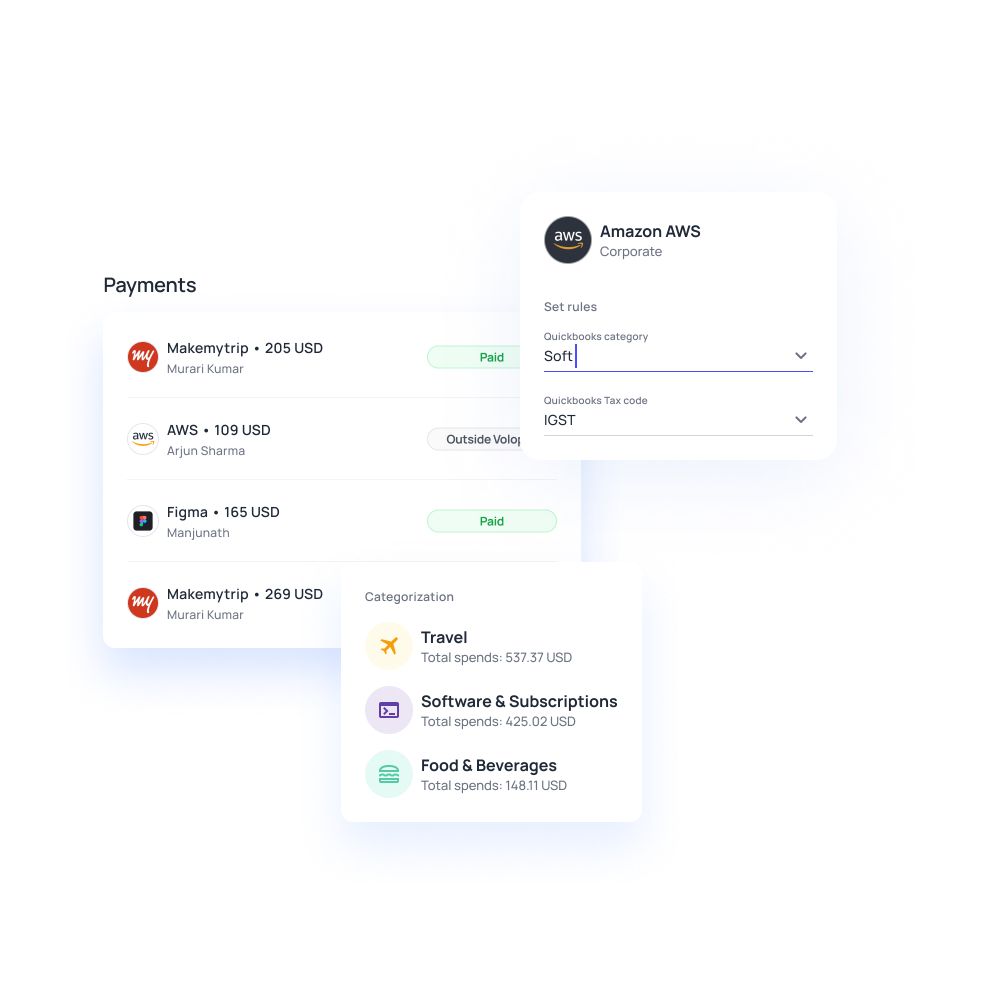
Building trust through financial reporting
Clear and concise financial reporting sets a precedent not only for transparency but also for accuracy within your organization.
By leaving no room for misinterpretation or ambiguity, effective financial reporting helps develop a workplace of trust and reliability for your entire team, as well as faith in you as the lead decision-maker.
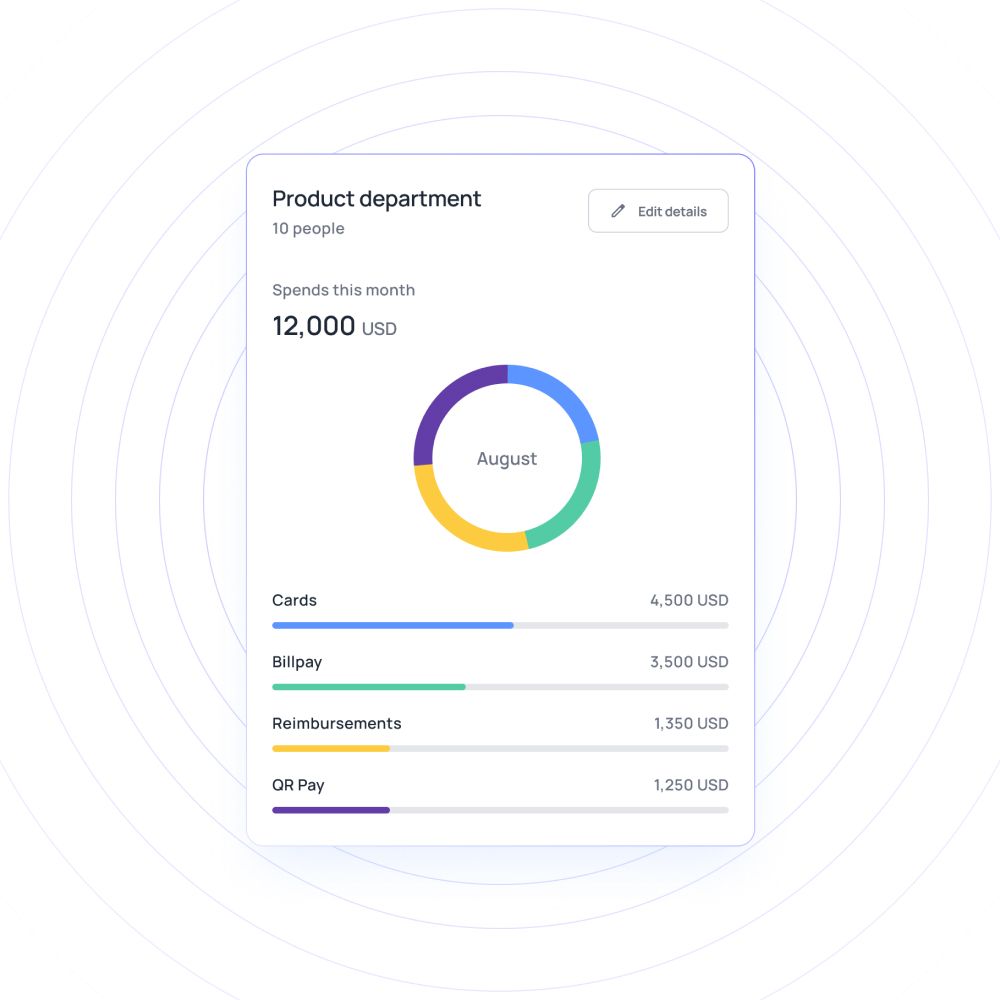
Real-time insights for smart decisions
Smart decisions are often taken after much deliberation, but sometimes these decisions need to be taken quickly without compromising the credibility of the referenced dataset.
When every minute counts, real-time insights go a long way in quickly and effectively informing the decisions that lead to successful and impactful initiatives.
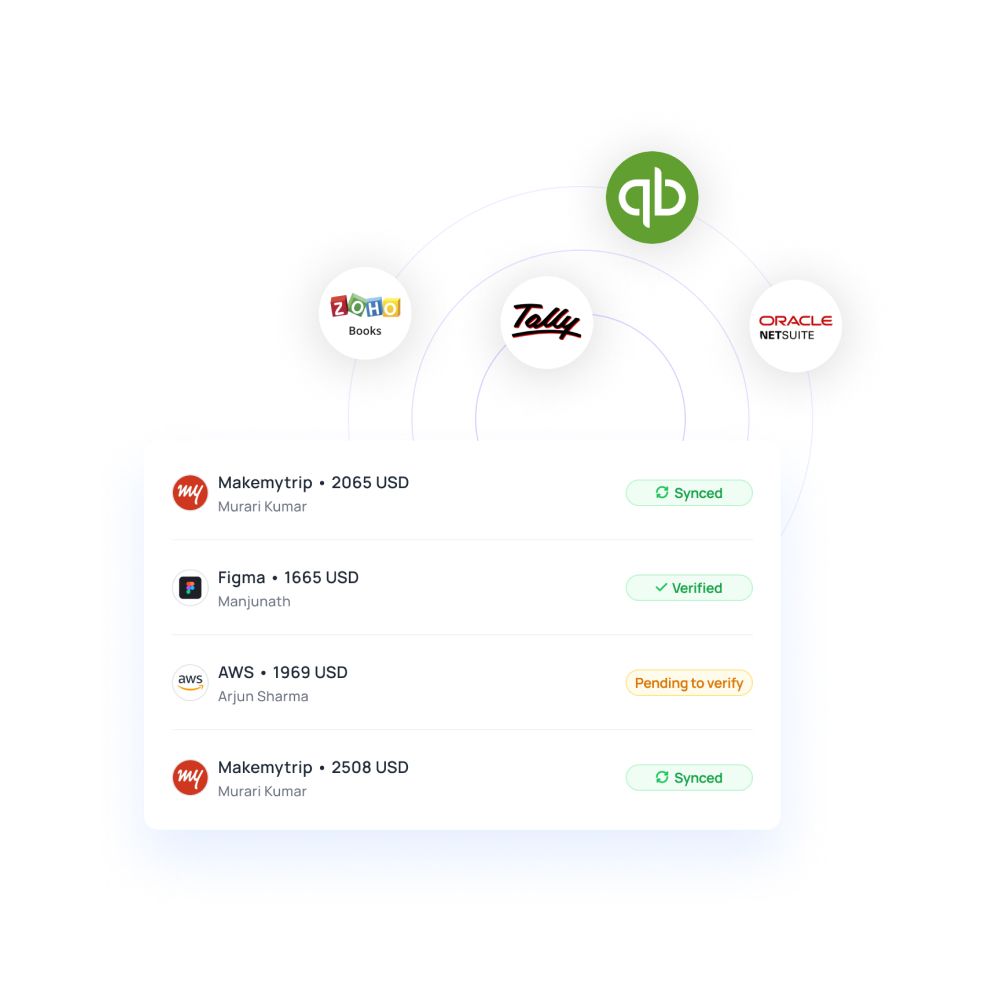
Technology to make finance smarter
Technology is an effective tool to remove the burden of redundancy and human error.
By utilizing automation and other integrated tech stacks, your teams can let the software do the task of data extraction, sorting, and filtering, while they take care of the human element—interpretation, problem-solving, and solution-oriented actions.
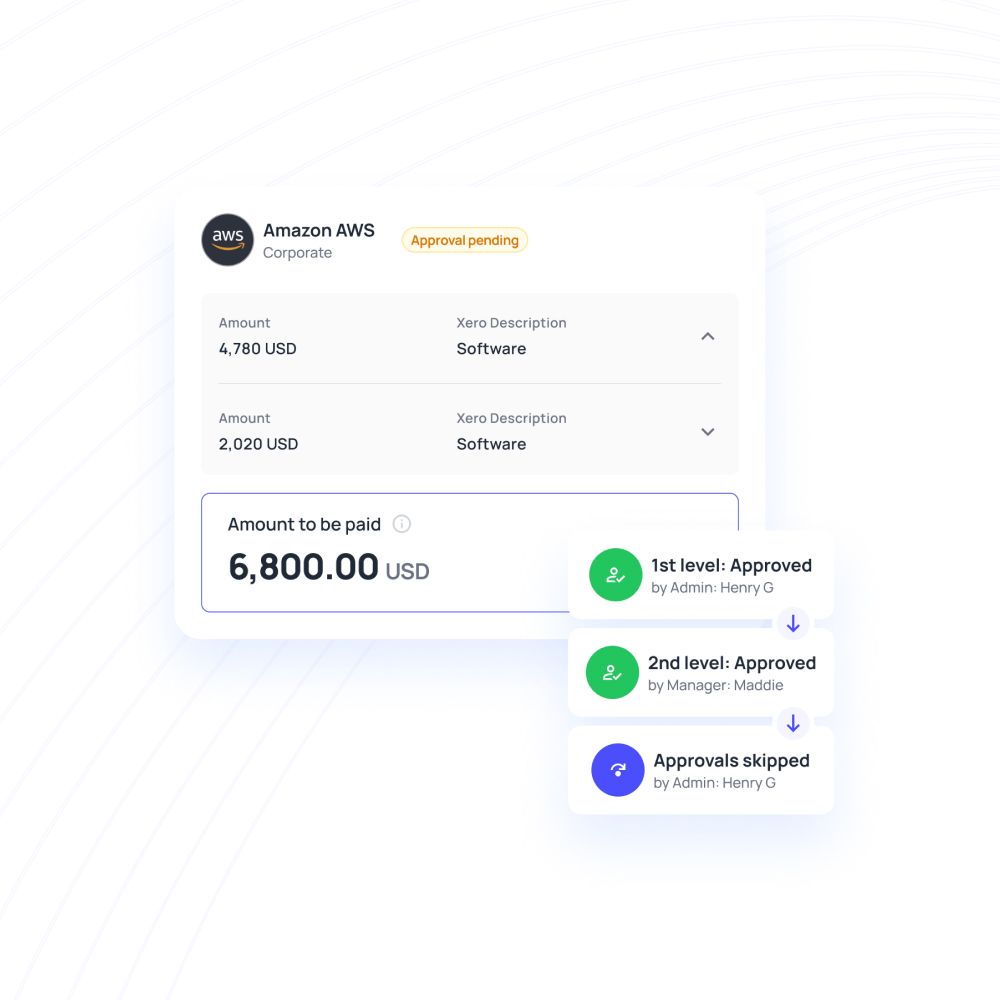
Planning ahead to stay one step ahead
Forethought allows financial teams to not just prepare contingencies, but also create effective forecasts that can inform long-term strategies and scaling roadmaps.
In order to do so, reliable data and analytics need to be used, and leveraging technology can help provide this data in a way that’s trustworthy but also usable.
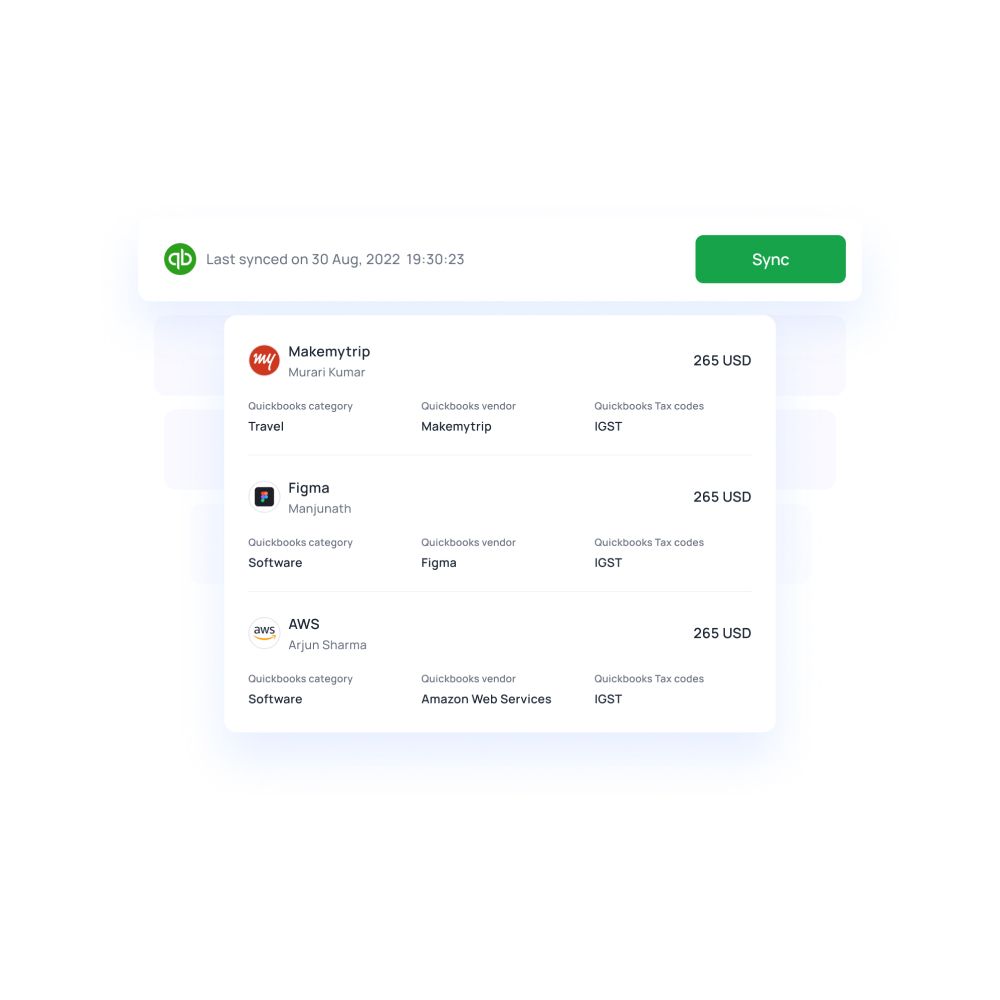
Empowering team to enhance productivity
Ultimately, your team members are there to support your organization’s goals, and it requires them to focus on their core job.
Spending time on manual, repetitive tasks can not only waste hours but also bring down overall productivity—whereas using automation can free up hours to contribute to actual growth initiatives.
What are the pitfalls of delegating AP automation decisions?
As the CFO or the Head of Finance, you are accountable for every financial decision made by your team. Delegating these tasks can create the risk of errors and inefficiencies, but also leaves the door open for major compliance failures, irreversible mistakes, and poor output.
Moreover, it can have a domino effect by hindering how your business grows over its lifetime, and also inadvertently cause a divergence from the core strategies your goals are founded on.
Missing out on long-term financial strategy alignment
As a key strategist, when you delegate AP automation decisions, you are opening up these decisions to outcomes that completely differ from your long-term strategy.
Technological tools are only as useful as their implementation, and the most favorable implementation requires you to have a hands-on approach to decision-making to steer output in the right direction.
Increased risk of compliance failures and financial errors
Delegation runs the risk of compliance failures and financial errors. Without your oversight of how automation is implemented, the automated tasks can easily become non-compliant (not just with company policy but also within the legal frameworks where your business operates).
It can also cause incorrect data reporting and usage if the workflows aren’t implemented as per your business requirements.
Inefficiencies that could go unnoticed
Inefficiencies are not the most noticeable unless one takes an eagle-eye approach to your team’s work.
Delegating such a task could cause critical failure in noticing where you’re facing bottlenecks, and also prevent your team from streamlining their job. It requires the informed and strategy-led oversight of a key decision-maker, such as a CFO or Head of Finance.
Lack of scalability for future growth
The goal of every business is growth, and in order to effectively scale, AP automation needs to be implemented with the knowledge of a long-term vision.
You cannot effectively introduce AP automation to your organization without a clear understanding of what you hope to achieve with it and the volume of data you intend to one day process through it, and such a decision cannot be delegated.
Suggested read: Essential CFO tech stack to support business growth
Empower your finance team with real-time insights and automation
Why CFOs should lead AP automation decisions?
Some of your primary responsibilities include cost control, fraud prevention, and compliance—all of which are areas where efficiency is a non-negotiable factor.
Given that AP automation is closely tied to protecting these focus areas, and streamlining them, the wrong choice of AP automation software (and how it’s put to use) could lead to a serious leak in company resources and expose your entire organization to financial risks.
Strong, reliable leadership at the head of these decisions ensures that your tech stack supports your financial strategy and allows scalability, all while following strict compliance.
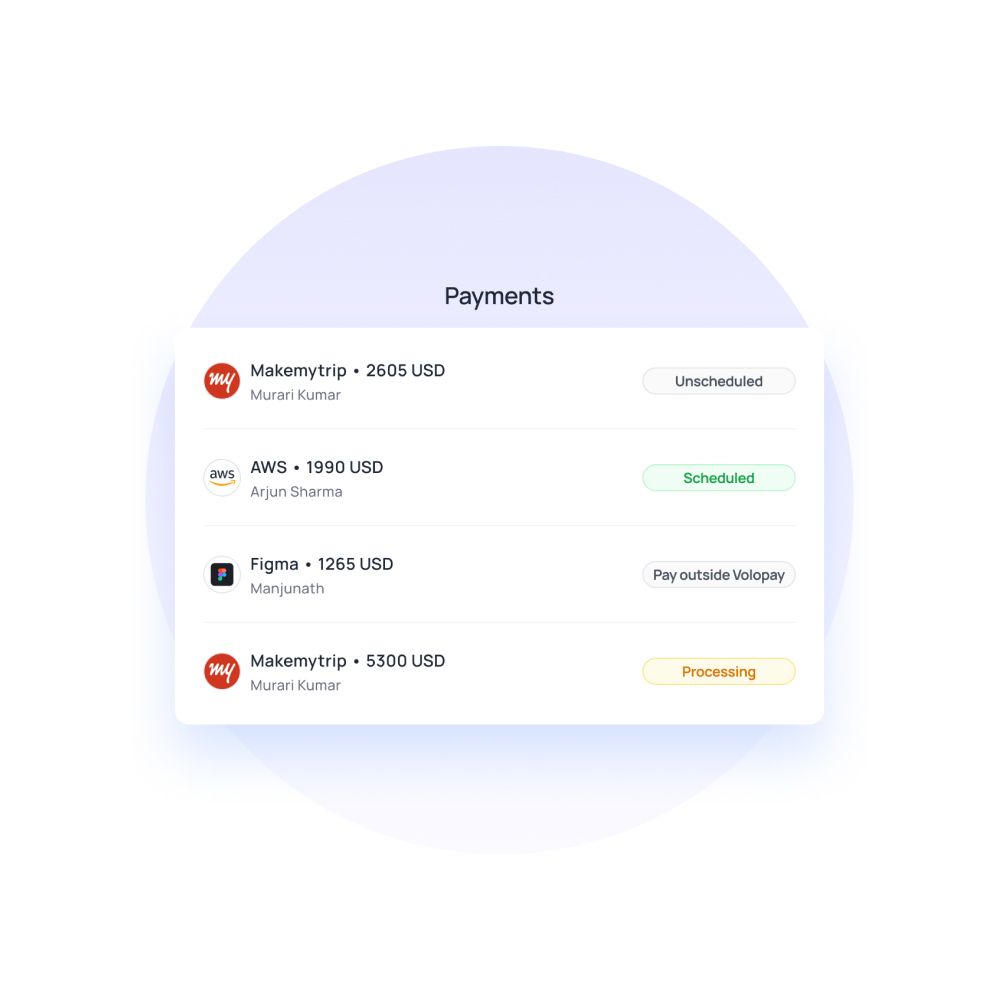
Critical financial risks of ignoring AP automation
When the lack of automation is putting your organization at risk of drained resources, fraudulent costs, and non-compliance (with some unexpected and expensive penalties), it is imperative that you take the initiative to safeguard your company’s resources and protect its stability.
Without a CFO or Finance Head’s oversight, issues like duplicated or delayed payments, and inexplicably dried-up cash flows can easily fly under the radar.
An additional, alarming fact is that non-compliance exposes your company to hefty penalties because of a lack of audit-ready data, the application of outdated tax and payment regulations, as well as improperly reported paperwork. All of this is avoidable when you choose to bring in the right AP automation software.
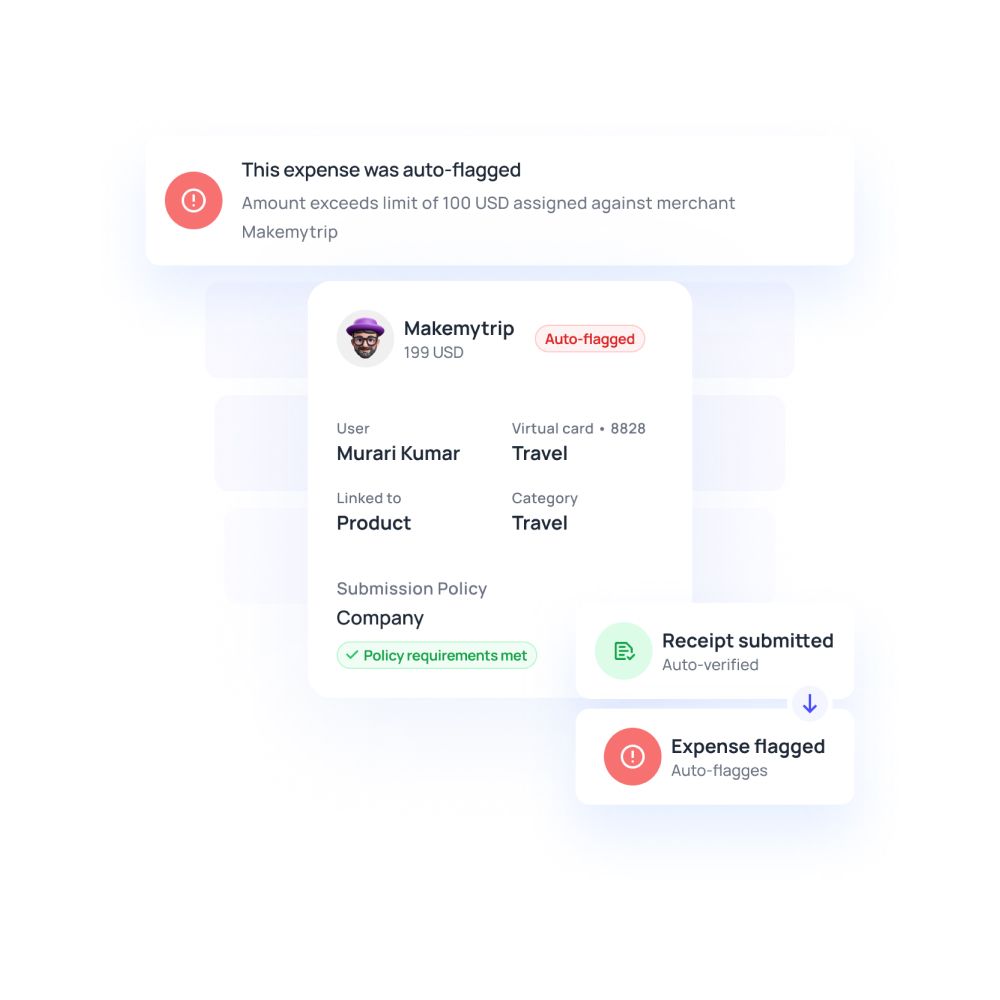
5 key considerations for a CFO when choosing AP automation software
At this point, you fully understand why you must make the decision on which AP automation software is introduced to your team and how it is utilized. However, choosing software is not as simple as picking a name off a list.
Given the number of focus areas that AP automation software streamlines, and the weight of each one, there are multiple factors to keep in mind before deciding which AP automation software is most effective for your company’s favored outputs.
Strengthening financial control with seamless integration
An effective tech stack reduces workload instead of increasing it. This is why it is imperative that your AP automation software of choice can seamlessly integrate with existing accounting software, HR systems, and ERP software.
Creating a data sync between these allows for better strategizing and also minimizes manual intervention to transfer data for different data processing needs.
Reducing financial risks with built-in fraud protection
Built-in fraud protection goes a long way in detecting and preventing fraudulent transactions before they’ve even occurred.
Fraud protection can include (but is not limited to) the ability to detect duplicate payments and invoices, preventing the processing of non-compliant transactions, and rigid data encryption to protect not just your assets but also employee and user data.
Real-time insights for smarter financial decisions
Relying on old data can cause delays in critical decision-making. Usable insights include live updates for transactions, notifications for approvals and processing, as well as live analytics with every transaction that takes place.
Good AP automation software also provides the ability to link these transactions to specific departments, users, and projects for further clarity.
Enhancing efficiency through workflow automation
Effective automation is only possible through effective workflows, which can also be automated with good AP software.
Streamlined invoice processing, payment automation, and expense report acceptance can all be made efficient through workflows that allow seamless and accountable approvals as well as automated trigger mapping for accurate reconciliation and accounting.
Scalable and customizable for business growth
Scalability is a requirement but what does it actually entail? Scalable AP software should be able to meet your organization’s demands with the ability to process payments and data at the future volumes you predict.
Moreover, a good AP software provider will also create flexible room to understand your organization’s requirements and provide customized solutions tailored to your financial goals.
To explore the best AP automation solutions that align with your business growth and financial objectives, visit our page on the Best accounts payable automation software in the US for 2025.
How can AP automation drive strategic financial growth for CFOs?
The moment you implement a high-functioning AP system, you already take care of timely and accurate payments, reduce manual errors, and therefore optimize your organization’s cash flow.
But more importantly, automation of all these tasks frees up a lot of time—yours and your team’s—to focus on strategic tasks like financial planning and effective forecasting.
It creates a foundation for transparent, accountable, and reliable financial operations, which empower the company to make more fruitful, growth-focused long-term decisions.
You can also check out our article on the benefits of AP automation for CFOs and financial controllers to learn more.
Introducing Volopay: Empowering CFOs with next-level AP automation capabilities
Volopay is a modern suite of financial tools that empowers CFOs to not only automate accounts payable processes but also provides them with an all-in-one dashboard for a complete overview of financial processes in their organization.
The user-friendly interface makes it easy to implement, providing quick access to AP-imperative tools such as invoice processing, payment scheduling, receipt management, payment approval workflows, and vendor management systems. In combination with its expense management capabilities and its corporate cards, Volopay is an all-rounded software to ease the burden on your finance team.
It also integrates smoothly with multiple HR, ERP, and accounting systems for automated and compliant bookkeeping, which makes it possible for CFOs to oversee the end-to-end cycle of accounts payable.
Importance of Volopay’s AP automation features for your business
Volopay’s comprehensive AP automation system brings together multiple tools to streamline your AP from start to finish, creating an efficient workflow to reduce manual labor and eliminate redundant tasks.
From invoice capturing to payment scheduling, and reconciliation to bookkeeping, Volopay can automate tasks that free up finance teams from wasting money and hours on large volumes of AP processing.
1. Streamlined invoice submission and approval
With Volopay, your finance team can automate invoice capture, processing, and storage. Store invoices in one location, and ensure that your vendors are paid on time to prevent disruption of vital business operations.
Eliminate the risk of duplicate or delayed payments by scheduling payments in advance, and take advantage of quick approvals to avoid spending money on late payment fees. Perform 2-way and 3-way matching for maximum accuracy to avoid data errors.
2. Real-time tracking of all expenses
Expenses made through Volopay come with real-time updates on all transactions—as soon as a payment is made, push and email notifications allow teams and managers to track payments.
Payments also get automatically updated to the general ledger, streamlining reconciliation and reporting. Approvals are also processed in real time, which makes it easier for payments to be scheduled (in bulk and in advance) and for fund requests to be processed on time.
3. Advanced OCR for quick data entry
Volopay’s Magic Scan is an AI-powered OCR tool that automatically captures read-only invoices and converts them to usable text data.
Simply take a picture of your paper invoice, or scan a read-only invoice document, to automatically extract invoice data such as vendor information, payment amounts, individual line items, payment terms, and payment dates.
With multi-language and multi-currency support, Volopay’s Magic Scan empowers teams that conduct their business across the globe.
4. Manage vendors in over 130 countries
Vendor management is made simpler with Volopay’s dashboard, where companies can create vendors, manage their payment information, manage vendor contracts, and consolidate all payments related to them in a single place.
Whether a payment is made through a transfer or through a corporate card, vendor- and merchant-specific customizable controls can be applied to ensure maximum fraud protection.
Additionally, automated reconciliation allows payments to be mapped to specific vendors based on smart accounting triggers.
5. Seamless integration with accounting software
Volopay integrates with major accounting software such as QuickBooks, Netsuite, Xero, ZohoBooks, MYOB, Deskera, and more.
These integrations create an automatic two-way sync for all transactions made through Volopay, allowing bookkeeping and reconciliation to take place without repetitive manual entry or human error.
Advanced mapping rules also enable transactions to be tagged with specific data such as user, vendor, department or project, and GL codes, so that accounting is efficient and manual intervention minimized.
6. Schedule and manage vendor payouts
Through Volopay, your finance team can make quick domestic payments and international vendor payments at competitive FX rates, allowing your company to conduct business worldwide.
These payments can be scheduled in advance to avoid delays, which saves your company money in late-payment fees, allows you to nurture vendor relationships, and helps you negotiate favorable contract terms and discounts.
Payments can also be scheduled in bulk, letting your team process large volumes of payments without excess workload.
7. Customizable multi-level approval workflows
Volopay’s maker-checker system introduces transparent accountability. Company admins can assign multiple levels of approvers for payment requests, fund requests, as well as corporate card creation.
These approvals can also be done on the go with the help of the mobile app, so that CFOs can have complete oversight from anywhere in the world and traveling employees can pay vendors without hindrance.
Customizable workflows also allow approvals to be tailored to account for absences and automatic approvals.
Proven results - An impactful case study from Volopay
One of the primary use cases for Volopay’s AP automation software is for businesses that need to make frequent vendor payments, in large volumes, both domestically and cross-border.
Additionally, the requirement for robust expense management systems comes into place in order to track these payments and reconcile them efficiently, while maintaining forecasted budgets. There is also a requirement for seamless accounting automation to make bookkeeping easier.
Challenges faced
The primary challenges faced by our clients are the high conversion rates and exorbitant FX fees when conducting business with global vendors. Traditional payment methods prove expensive and also cause delays, which can disrupt essential business services.
Overall, this impacts cash flow, since budgets are not adhered to and it is difficult to track who has made a payment where. Lack of accounting capabilities also increases a bulk of manual work, since large enterprises still rely on traditional expense reporting methods such as spreadsheets and CSV data to feed into their accounting software.
How Volopay helped?
Volopay’s business account is a powerful tool to handle accounts payable payments. The ability to create multi-currency wallets empowers businesses to not only make international payments easily but to also transact in local currencies to minimize conversion costs.
In the event that payments are made in a foreign currency, FX fees and conversion rates are highly competitive, making the entire process much more economical.
Customizable controls set payment limits for specific departments and projects for budget adherence, as do multi-level approvals. Native accounting integrations take the automatically recorded and tagged transaction data and sync it with clients’ accounting software of choice, eliminating the need for dual data entry and making bookkeeping a seamless affair.
Bring Volopay to your business
Get started now